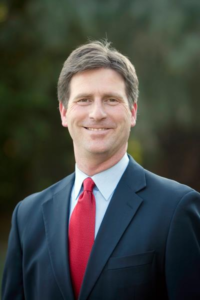The Phoenix City Council voted unanimously to provide seed funding for a technology medical and life science accelerator at the University of Arizona on the Phoenix Biomedical Campus.
Potentially to be called InnoVention, the accelerator would be one of 13 such school accelerators in the United States.
The city council approved investing $35,000 in seed money to pay for two master’s-level MBA students to participate in the program, said Phoenix Mayor Greg Stanton.
“It’s a relatively small investment that will pay big dividends,” he said. “We are bringing entrepreneurial MBA students right in the laboratory so they can work side-by-side with scientists so they can help from early stages of scientific research how that idea is being looked at so it can be brought to the marketplace as soon as possible.”
This accelerator is different from traditional tech transfer programs at universities, such as UA’s Tech Launch Arizona, which helps professors and scientists commercialize their technologies and inventions.
“This is actually having the business students in there during the scientific discovery phase,” Stanton said.
“One of the coolest things we saw there was the co-working incubator accelerator that they had built on campus there, allowing these entrepreneurs to work with these leading medical service providers,” Stanton said.
That’s also where Stanton met Dr. Robert Robbins, who at the time was president and CEO of Texas Medical Center Corp. and who subsequently became president of UA in May 2017.
“Dr. Robbins understands the value of medical schools and obviously of the business opportunities,” Stanton said.
Dr. Frederic Zenhausern, founding director of UA’s Center for Applied Nanobioscience and Medicine, is co-developing the InnoVention accelerator.
That’s one of the reasons Stanton said he invited the UA Eller College of Management to have an office on the Phoenix Biomedical Campus.
“We want business and science and medicine to work more closely together,” Stanton said.
The seed funding from the city will be a good start, Zenhausern said.
“We would love to have the community involved,” he said. “We are also thinking about bringing in a future advisory board of people from corporations and academic institutions.”


